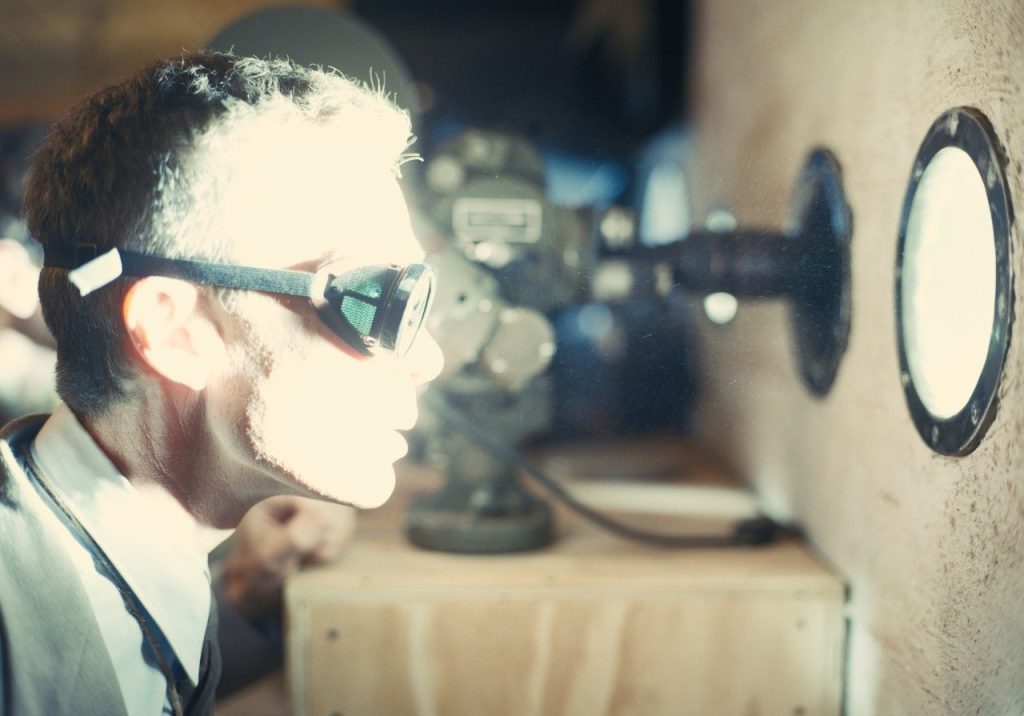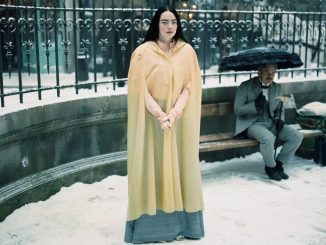
The “Barbieheimer” phenomenon—the dual runaway success of the films Barbie and Oppenheimer—is a tribute to their movie magnificence as well as their lavish production and marketing and their social and cultural traction amid the traumas and horrors of a hellacious summer the world over.
Both offer a shrewd kind of temporary escape from the terrors and anxieties of our historical moment, and yet theirs is the “escapism” of an alert, self-questioning sort. We viewers are richly entertained and grandly “transported”—but in ways that never really lose touch with stuff that matters greatly in the here and now. That may seem almost too obvious in the case of Oppenheimer with its history of the atom bomb, but don’t forget that the flashy musical comedy of Barbie centers on a large helping of pertinent, and briskly intelligent, social satire—on gender relations, monopoly capitalism, consumer culture and more.
Oppenheimer is plainly the weightier of the two, but its manifest power has more to do with the prestige and gravitas of its subject matter than with what it actually delivers on screen. It deserves real credit, as does Barbie, for drawing audiences back to movie theaters and the big screen, and for giving them much that they’ll want to talk about, and even study, after the show.
But as a movie, Oppenheimer staggers under the massive burdens of its subject matter. For all that’s impressive in its performances and staging, Christopher Nolan’s film seems to flounder in the long run. Failure, I’m guessing, almost inevitably accompanies this eminently ambitious venture. Because the atom bomb is part of it, J. Robert Oppenheimer’s extraordinary life story eludes full capture within even the most expansive confines of a three-hour biopic. The invocation of the legend of Prometheus is apt, but while Greek Tragedy embraces the story of Prometheus, Nolan’s film remains a somewhat baffled portrait of an exceptional scientist trapped in a hell of unintended consequences.

Nolan’s film is rather labored and unwieldy. Barbie, by contrast, is rapturously entertaining (and seemingly lighthearted) throughout. While it is very much preoccupied with superficiality and the surface of things, director Greta Gerwig’s fanciful comedy and satire thrives brilliantly with the deftly challenging intelligence of its script and character portrayals. That screenplay, co-written by Gerwig and her partner, indie filmmaker Noah Baumbach, strikes me as eminently worthy of Oscar consideration.
Both films have some outstanding performances. Robert Downey Jr., as one of Oppenheimer’s deceptively collegial antagonists, delivers what may be the most genuinely immersive performance of his career. And Cillian Murphy is excellent in the title role.
Margot Robbie’s Barbie and Ryan Gosling’s Ken are truly brilliant. America Ferreira’s rendition of a long, heartfelt monologue and Kate McKinnon’s stylized antics as “Weird Barbie” are special standouts as well.


Be the first to comment